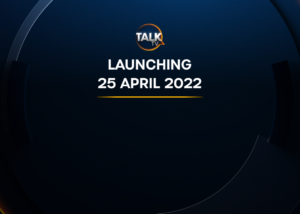Not a story that has been covered on this website, but it has now been widely reported that Netflix is struggling to maintain is subscriber numbers. Netflix was one of the first subscription on-demand streaming services, and has enjoyed success over a number of years, but now finds itself in less calm waters.
Naturally, Netflix and other subscription services such as Amazon Prime saw a boost in subscribers due to the Covid-19 pandemic. Large sections of the population, both in the UK and worldwide, found themselves with less work to do, and more time on their hands. With only so much DIY possible, entertainment from the comfort your own home became increasingly important, particularly with the severe restrictions in place in the early days of the pandemic. However, most of these restrictions are now being lifted, and streaming services are now less important.
However, the drop in subscriber numbers that Netflix is facing is not replicated across the industry as a whole (or at the very least based on the limited figures I have at my disposal). Therefore, there must be other factors in play, with two that stand out; competition, and the rising costs of essentials.
Naturally, the latter is starting to bite hard. Fuel prices have been increased by at least 50p often more, despite a 5p cut in fuel duty (tax). This in turn has forced food prices up. Not to mention increases in the costs of electricity and gas. All largely blamed on rising wholesale costs, albeit with little actual evidence of what has increased these wholesales costs. The rise in costs was already in motion before Russia invaded Ukraine, and whilst that hasn’t helped matters, I don’t really buy into that excuse (although that subject is a debate in its own right).
Returning to Netflix and streaming services, with these being a luxury, they’re most likely to be cut from family budgets earlier. It would be plausible for those who subscribe to multiple services, to cut back to a fewer amount. Perhaps, this could be the one used most often, or one with another benefit (next day delivery on Amazon purchases with Amazon Prime for example). This may partially explain the drop in Netflix customers.
Competition is perhaps the bigger driving factor, with more services available than ever before. When once Netflix was in a handful of big fish, now several platforms compete for viewers attention. Recent arrivals include Britbox, Apple TV, Paramount Plus, soon to launch ITV X, and the popular Disney Plus, to name but a few. Not to mention the aforementioned Amazon Prime, and free services such as BBC iPlayer, ITV Hub, All 4, and My5. Many like to try new things, and that is a driving factor against Netflix.
It seems unlikely that Netflix will fade away, but it seems unlikely that it will continue to be the dominant force that it once was. It will be interesting to see future market shifts. Will the many small players survive, or will they thrive and further erode the Netflix market share? Only time will tell.

